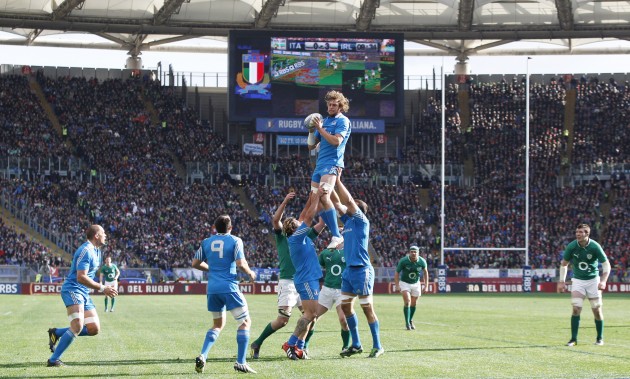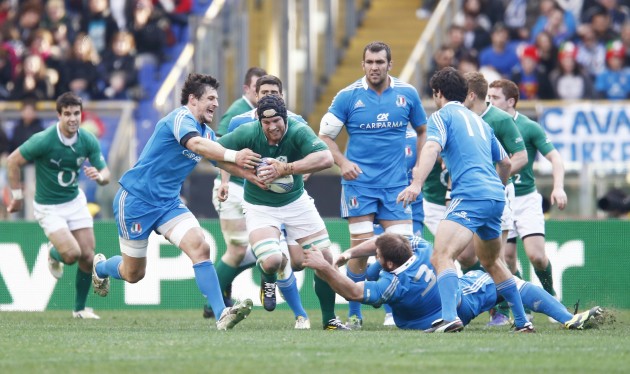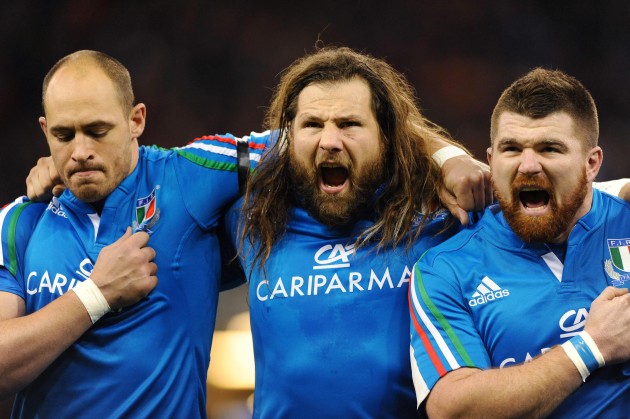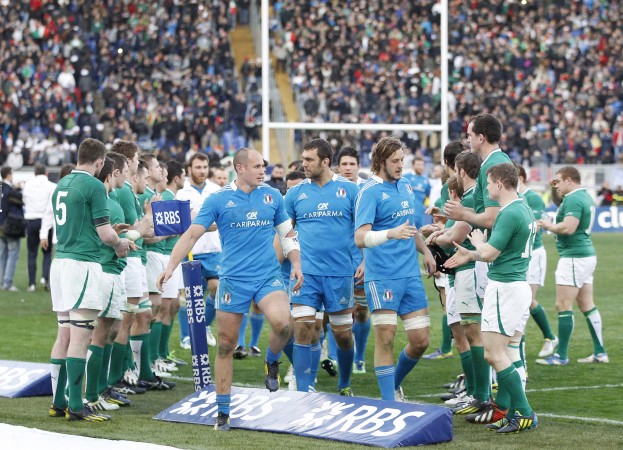The champions face a tough weekend in Rome but, as the stats show, it could be all downhill from there for the Italians
Should Ireland be wary of the Italian team awaiting them in Rome this weekend? Above and beyond the usual respect paid to any international opponent.
The short answer is yes, because stats support the notion that Italy are at their most dangerous in the Six Nations’ opening round. In ten of the 15 championships since the Azzurri joined in 2000, Italy’s opening result has surpassed their average for that year: highlights include the defeats of Scotland (2000), Wales (2003) and France (2013).
The thinking is that Italy are on a more equal footing at the start of the tournament, but struggle when the demands of the schedule test the squad depth and fitness levels later on. The difficulty in repeating the emotional intensity that goes with an Italian victory is also responsible for two stark facts: they’ve never won in two successive weeks, nor have they won a second-round match.
Stark but not startling because we’re talking slim pickings here, with a 15% success rate – 11 wins in 75 matches – reflecting the ongoing gulf between Italy and Europe’s elite. Even Scotland, whom Italy have defeated more times than they have the other nations put together, are distancing themselves, with Vern Cotter’s team having removed the tag of automatic wooden spoon candidates.
But for Ronan O’Gara’s last-gasp drop-goal four years ago, Italy would now be going for a Roman hat-trick against the Irish. Yet skipper Sergio Parisse says that if Italy played Ireland 100 times, they would “probably lose 98”. It’s hard to disagree with the sentiment because Parisse is arguably Italy’s only world-class player and they still yearn for a true successor to Diego Dominguez at No 10.
Something to build on
The latest hope is New Zealand-born fly-half Kelly Haimona, a former builder’s labourer from the Bay of Plenty who played all three autumn Tests having just qualified on residency. He’s made a decent fist of Test rugby so far but nothing suggests he will light the touch paper for an ordinary-looking back-line.
So as ever, Italy’s strength remains up front where can be found the reassuring presence of the English-based Leonardo Ghiraldini and Josh Furno, Toulon’s motormouth Martin Castrogiovanni and Treviso flanker Alessandro Zanni, runner-up in a Player of the Championship poll two years ago.
Fine players all but thank heaven for Parisse, the No 8 who, at 31 and with 108 caps under his belt, may go on to break the all-time caps record held by Brian O’Driscoll (141). He has missed just seven championship matches in the past decade and you shudder to think how Italy would have fared without him.
Parisse was 20 when he made his Six Nations debut against England in 2004. The Italy of that era was regularly beaten by over 20 points, but the gap has closed: from 2006-08 they lost by an average of 11 points a game and, after a blip in 2009 (the Mauro Bergamasco scrum-half experiment!), the Italians levelled out with remarkable consistency: from 2010-12 they finished with a -68 points difference (-14 a game). If you’d bet on that outcome, you could have bought the Colosseum with the winnings.
They were better still in 2013 but dipped last year, when they suffered as Ireland and England chased tries in a devilishly close-run championship.
Painful progress
What do we make of all this? That it’s taking a long time for Italy to catch up, and the financial and political problems besetting their domestic game mean Parisse might be greeting the teams as a wrinkly union president before they eventually win the title. Or even finish in the top half of the table.
Last autumn at least brought cause for optimism, with a renewed emphasis on scrum and defence helping them to beat Samoa – Italy’s solitary win in 2014 – and push the Pumas and Springboks close. The return of Simone Favaro, Francesco Minto and Luca Morisi from long-term injuries also swelled the ranks.
This will be the fourth and final Six Nations for coach Jacques Brunel, who will step down after the World Cup. Even without Johnny Sexton, Ireland should have too much in their locker for Italy this weekend and, with trips to Twickenham and Murrayfield to follow, anything other than an 11th Italian wooden spoon would be a surprise.
France at home in round four represents Italy’s best opportunity and Brunel will approach the fixture with special interest. The sides will meet again at the World Cup, in a pool also containing Ireland, and Brunel has the incentive of doing something no Italy coach has done before: guiding Italy to a World Cup quarter-final. That would be a legacy to bow out with.








